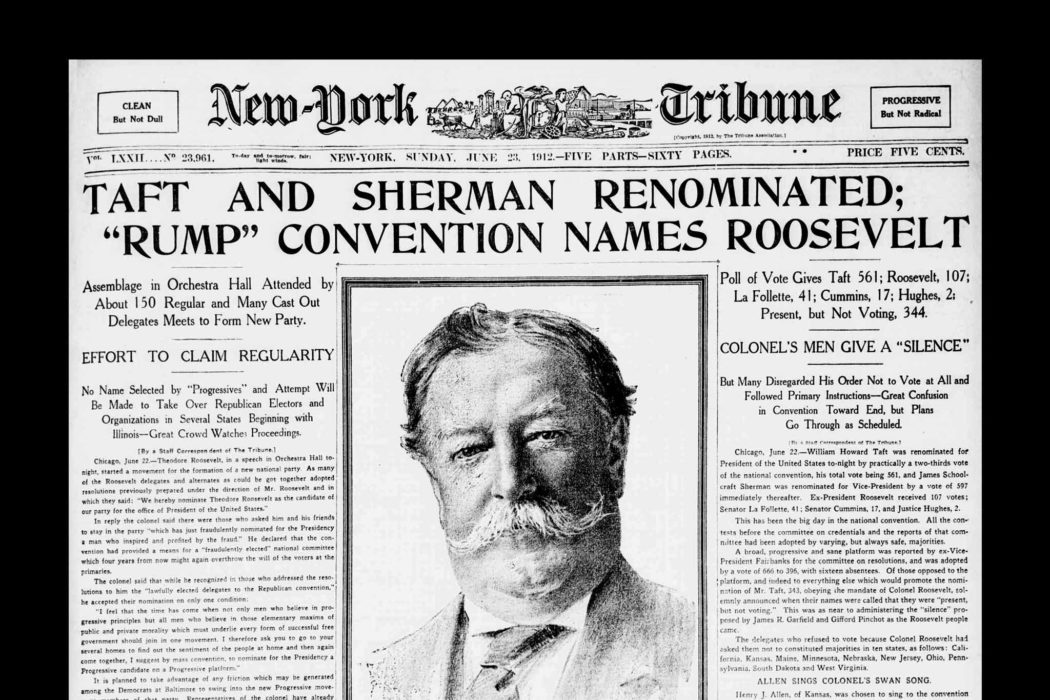‘ABDU’L-BAHÁ ARRIVED IN MONTCLAIR, New Jersey, on Friday, June 21, 1912, for a respite from the heat and humidity of New York. In Chicago, the Republican National Convention was about to choose its Presidential nominee. It was going to be William Howard Taft. Theodore Roosevelt refused to accept the outcome, and instructed 344 of his delegates not to vote. On Saturday evening in Chicago’s Orchestra Hall, he and his supporters decided to start a new political party with Roosevelt at its head.
In recent days — indeed, for the last three months — political news had dominated the headlines. But ‘Abdu’l-Bahá seemed not at all interested in parties or candidates, vote counts or political platforms. At the beginning of June, Amos Pinchot, and his brother Gifford, who was a close friend of Roosevelt and a member of his political team, had invited ‘Abdu’l-Bahá to stay overnight at his estate in Milford, Pennsylvania. The conversation turned, inevitably, to political subjects: fair taxation, the battle of capital and labor, trusts, and strike-breaking.
“Tonight you have spoken of politics,” ‘Abdu’l-Bahá said, “but we are not accustomed to talk of politics. We speak about the world of spirit. We speak of the wealth of the kingdom, not of the wealth of the nether world.”

But he did have something to say about the process of selecting leaders, and the qualities of leadership. One of Pinchot’s guests that day in Milford had asked him about the election. ‘Abdu’l-Bahá responded by discussing the way Americans elected their President.
The politicking at the conventions and the sensational press obscured a deeper debate about what kind of nation the United States should become. To what extent should The People rule? What should the role of the nation’s chief executive be?
The mass of the people, ‘Abdu’l-Bahá noted, tend to follow personalities. Indeed, the dramatic news stories during the past several months had demonstrated that the party nomination process had largely become a popularity contest. Instead, ‘Abdu’l-Bahá argued that the most suitable candidate would be the one chosen by the wisest people.
“It is evident that it is better the people elect the noble ones among them,” he said, “and then these elect the president of the republic. That is to say, the president should be the elect of the elect, because the public in general are not as well informed as they should be in regard to political affairs.”
“The affairs should be in the hands of the wise,” ‘Abdu’l-Bahá said. But then he clarified how the wise must act: “The wise people must be in the utmost faithfulness and sincerity of purpose, they must serve the people, and protect and safeguard their welfare.”






